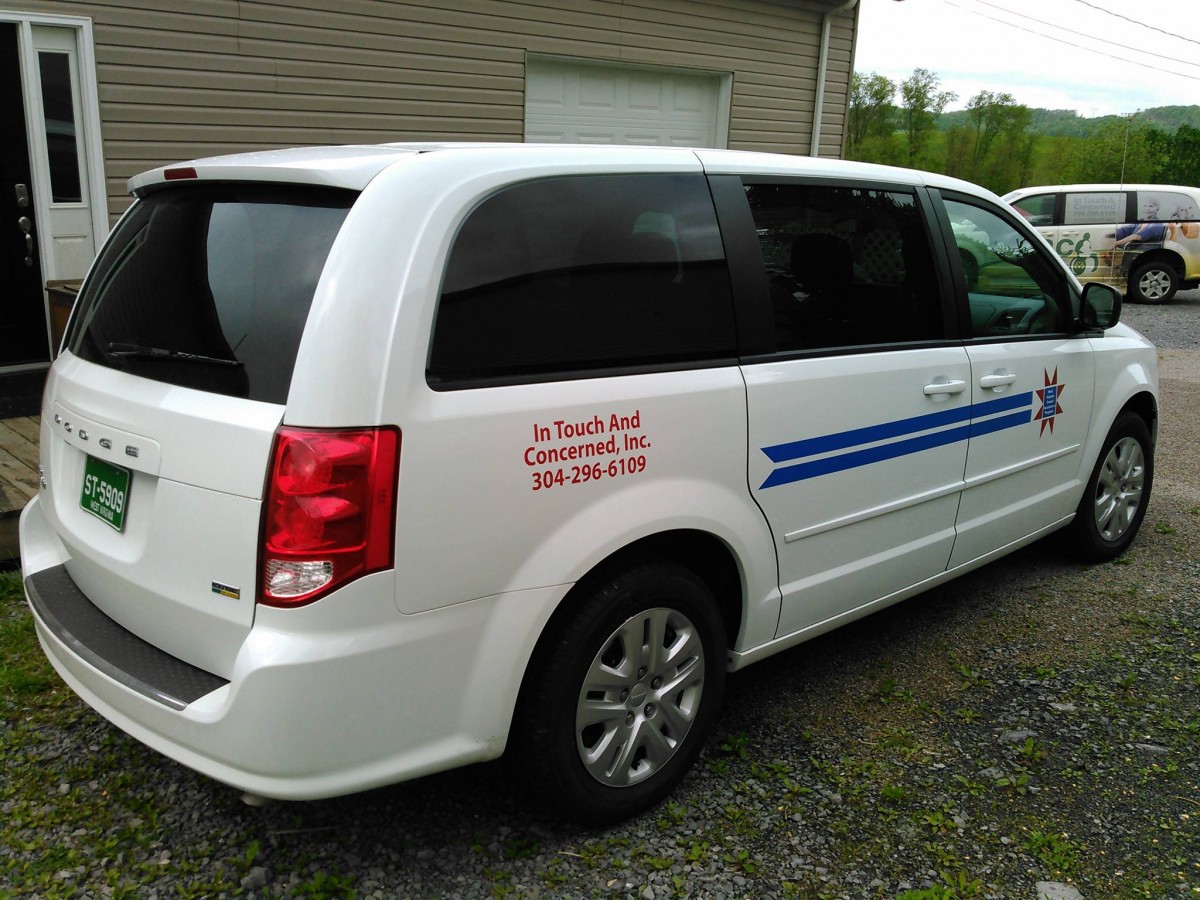MORGANTOWN — Wayne Adams was a mechanic once, and a good one by all accounts.
His independence, and very nearly his life, was taken by a drunk driver in 2007, leaving him with severe damage to his brain’s frontal lobe and a host of physical and cognitive challenges.
After weeks in a coma, months in a nursing home and nearly two years recovering, he reclaimed a small slice of his former life when his employer, Joe Romeo’s I-79 Honda Mazda, brought him back a couple days a week to help around the shop.
“That job is everything to him,” his mother, Glenna Riffon, told The Dominion Post. “It gave him a piece of his life back, because he’s back at home now living with me, his mother. The accident stripped everything from him.”
Critical to Adams returning to work was the non-emergency medical transportation provided by nonprofit In Touch & Concerned (ITAC).
Facing more than $100,000 in outstanding debt, ITAC closed its doors without warning Aug. 10, leaving Adams and hundreds of others with mobility issues out of affordable, dependable transportation options.
ITAC Board President Hans Wikle previously said the state-subsidized nonprofit was providing about 800 round trips monthly at its peak.
“The thing is they closed and didn’t even tell anyone. I have a job, too. I actually ended up driving over there trying to figure out what was going on,” Riffon said. “So I’m late for work now because I take him to work and then go to work myself.”
Without a family member willing or able to step in, one of the few remaining options for former ITAC clients is non-emergency ambulance service.
Garrett County, Md., resident Susanne Beeman said that’s what her family turned to in order to get her 94-year-old mother to medical appointments.
Then they found out how much it costs.
“Financially it’s ridiculous. I mean, $520 a trip just to get her from Garrison Avenue, off Willey Street, to the Mon Health campus,” Beeman said, explaining that her father had to write the check before his wife would be picked up. “If they [ITAC] were doing 800 rides a month, then what are all these people doing, paying that $500 every time?”
Beeman said another ride by a local ambulance service that was arranged by her mother’s doctor was followed by a bill for $1,300.
She said her mother is confined to a wheelchair and unable to communicate. Beeman’s father is 93 and cannot drive.
According to Beeman, if her mother lived in Garrett County, Md., she could be picked up at her front door for $2 by Garrett Transit.
“If little Garrett County can do it without most of the resources Morgantown has, then Morgantown should be able to figure something out,” she said.
According to Mountain Line Transit Authority General Manager Dave Bruffy, he’s among a group that includes representatives from the United Way and the Monongalia County Commission working to do just that.
Among the options being explored is a kind of dial-a-ride system in areas where Mountain Line normally operates.
“If we could conceivably make it work financially, that kind of Uber or Lyft type service by the transit authority with accessible vehicles, it could fill some of that gap,” Bruffy said. “We’re still trying to figure out what kind of options might be available.”
Bruffy said Mountain Line took possession of ITAC’s vehicles, but only to hold them until the state can reassign them. He went on to say Mountain Line and ITAC once shared scheduling software and space in the transit authority’s Westover headquarters.
That changed largely due to ITAC’s growth and the state’s decision to privatize non-emergency medical transport, he said.
Anyone located within three-quarters of a mile of an existing bus route can request a route deviation from Mountain Line.
If the location is suitable to handle bus traffic, a 50 cent deviation fee is charged and the bus will make the stop. Deviations are not permanent and must be requested each time it is needed.
“We do have several approved deviations in the system, but there are some locations that we just can’t get to in a bigger vehicle,” Bruffy said.
If a passenger needs a personal assistant to ride the bus, the assistant rides for free.
Those who live or travel beyond the transit system or have circumstances that prevent them from riding the bus are, for the time being, left to make due any way they can.
“It’ll work out. God has always carried us through and I have faith that he’s still working,” Riffon said, explaining that her son will get to work one way or another.
“He’s only making minimum wage working two days a week, but you know what, it’s his livelihood,” she said. “I would carry him there on my back if I could to get him to that job.”




